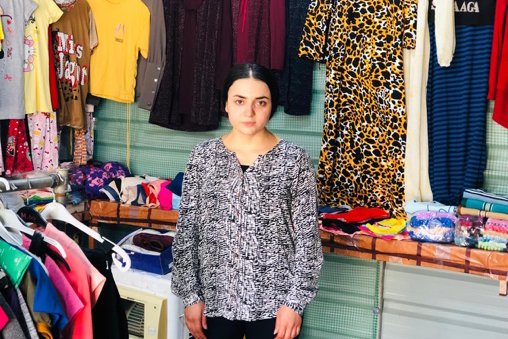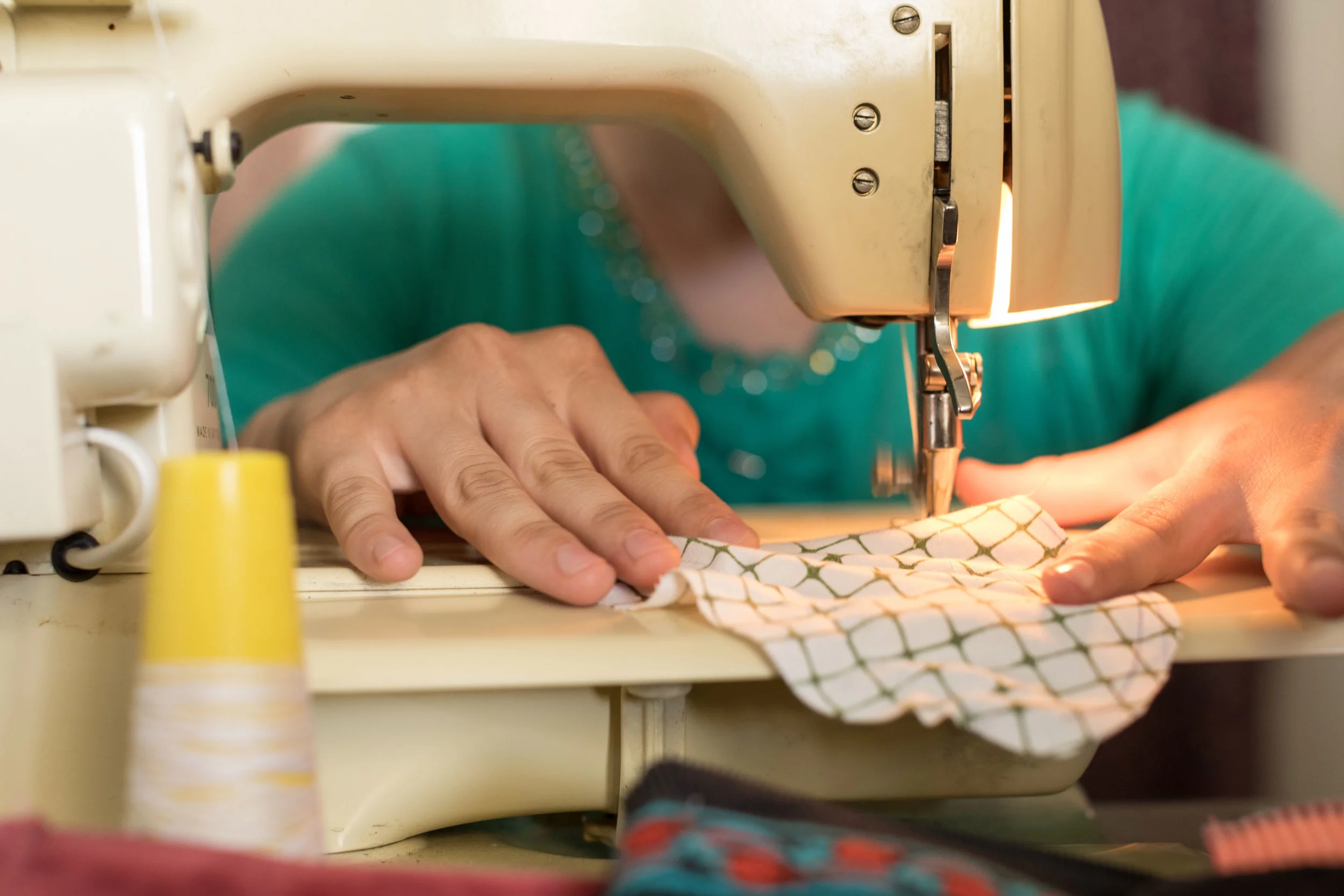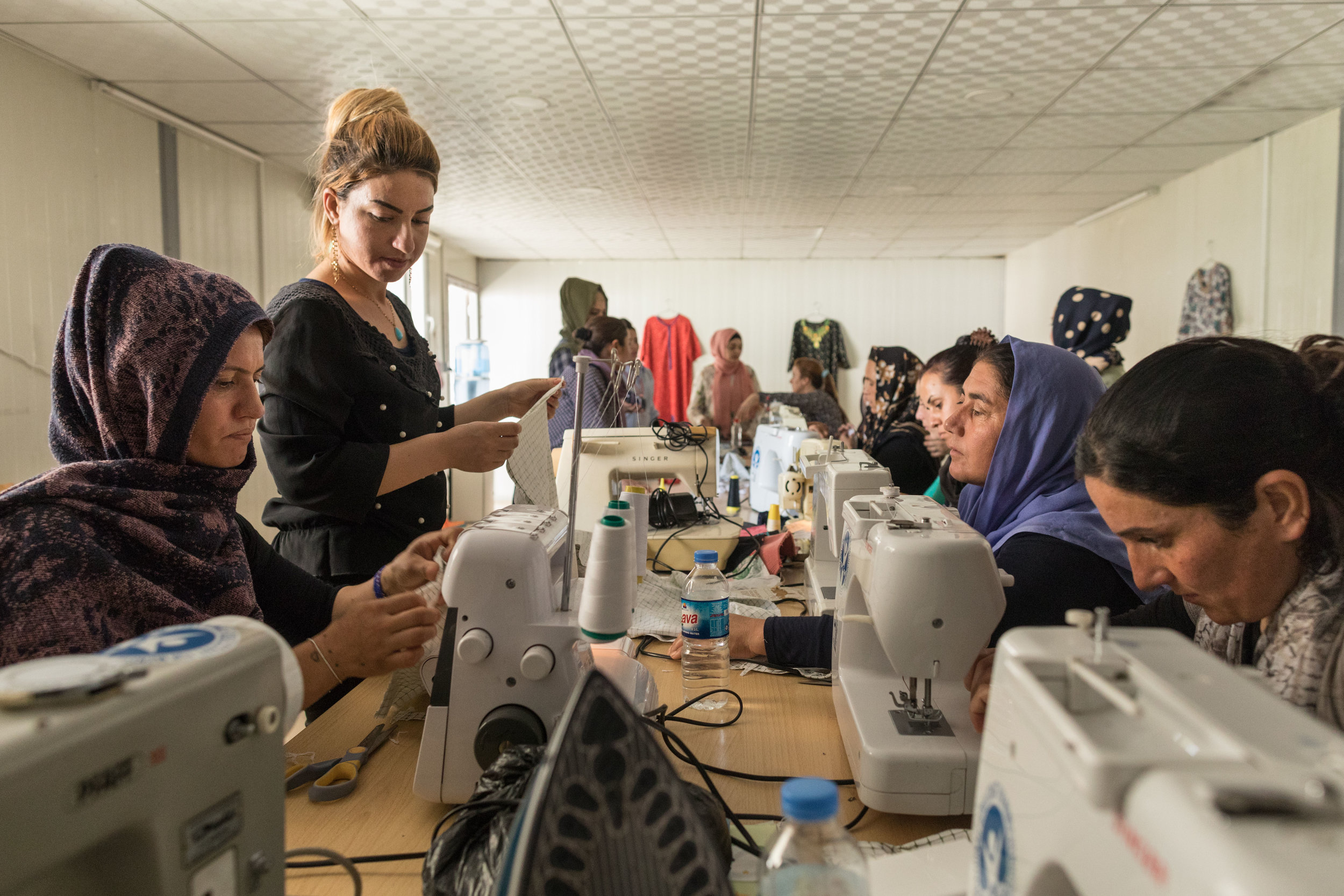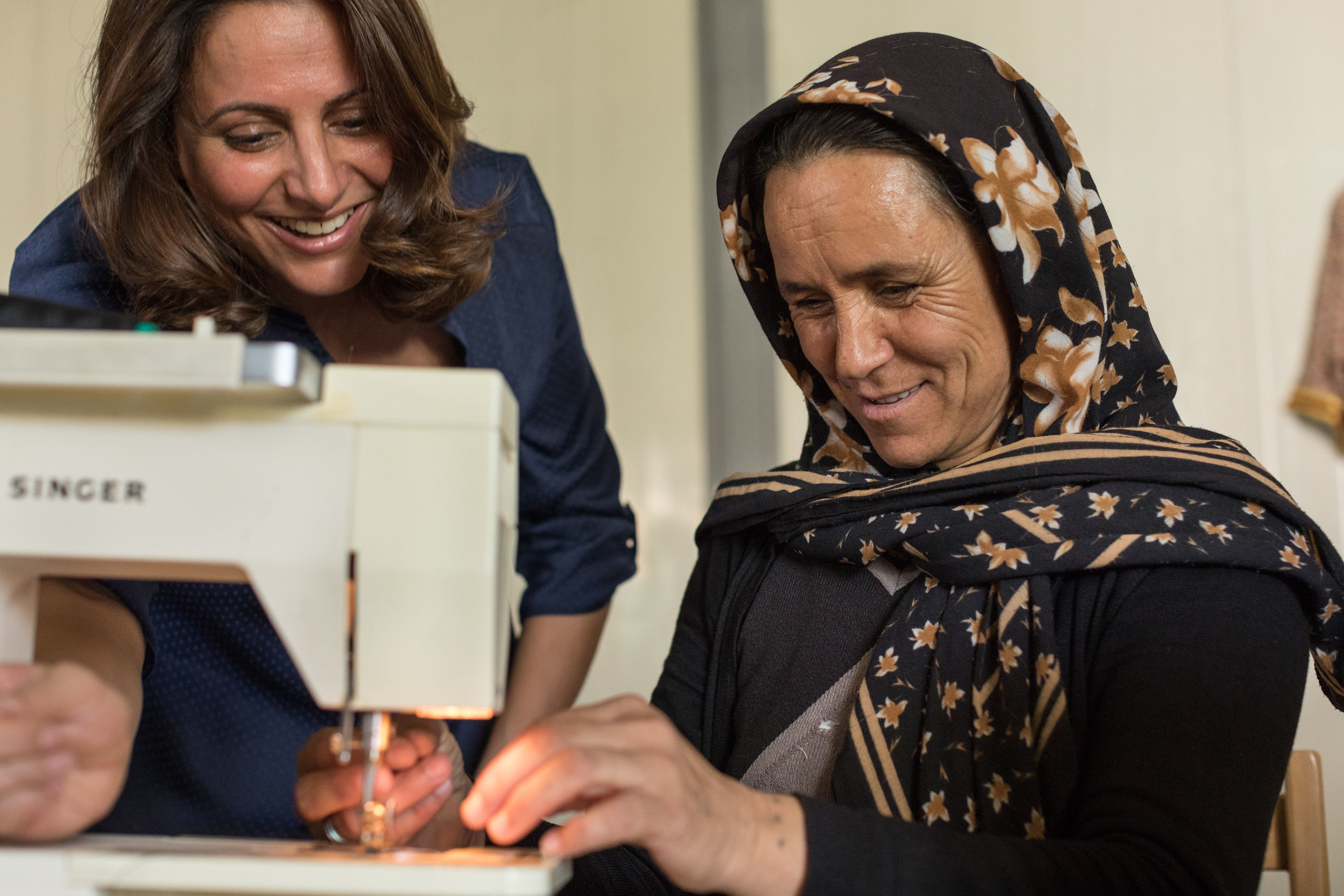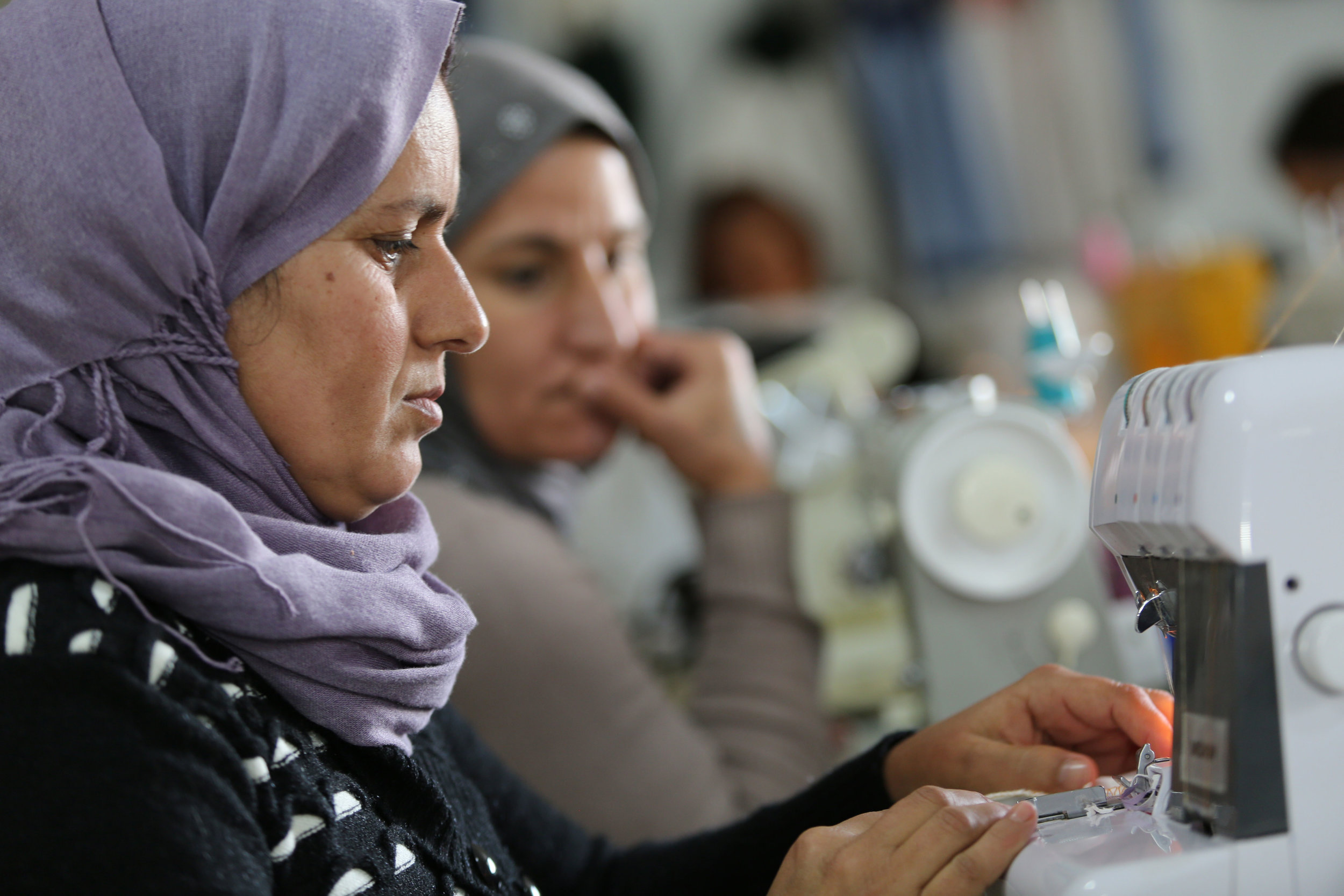Women’s Business Incubator
The Lotus Flower Women’s Business Incubator (WBI) provides a financial foundation and business mentorship for women-led small businesses. In addition, our women’s centre will host educational sessions on gender-based violence and women’s legal rights.
Our award-winning Women’s Business Incubator (WBI) provides financial foundations and support for women to start their own small businesses. By providing financial grants, business training, mentorship and awareness sessions, the Women’s Business Incubator enables women to earn an income through their own skills, become financially independent, and create a sustainable business for themselves. Any profits the women earn through their endeavours is paid directly to them and under their full control to support their families and re-invest in their own business.
The training covers topics such as entrepreneurship, profit, revenue, payroll, supply chains, surveys and marketing, sales and accounting, plus scalability and risk. Successful businesses which have launched since the project’s launch in 2019 include hair and beauty salons, snack shops, restaurants, stationery stores and clothing and accessory shops. The project has also provided support for women’s businesses that were adversely affected by the pandemic, including training in digital skills and hygiene training, as well as online marketing and delivery services.
In addition, our Women’s Business Incubator provides psychological therapy for participants who are still suffering the aftermath of conflict, and also includes awareness sessions on gender-based violence and women’s legal rights. Male family and other community members also participate in these sessions, as by including everyone, men and boys do not feel marginalised and can choose to take an active supportive role. In recognition of the strengths of the project, we won a UNHCR Iraq award for Innovation in early 2022.
With many of the women we support have their own ideas about what sort of business they would like to run, most lack the capital and support to start them. Our Incubator provides these necessary inputs while also providing the community support that is a vital ingredient to business success.
CASE STUDY
Orphan Hussna came to Essyan camp with her grandparents in 2015. After taking part in several of our other projects – such as sports, crafts and photography – Hussna had the opportunity to take part in our Women’s Business Incubator project. After receiving intensive business training, a start-up grant and mentorship, she was able to open her own shop which now sells clothes for children and women in the community. It has proved a big success, and she says: “It means I now earn income for me and my family, so I can provide food and clothing for my grandparents. One day I hope I can pursue an education too, so that I become more skilled and am able to expand my business further and employ other people.”
Baking Sisters
What started as a small project, utilising the talents of a few skilled bakers amongst the women is going to develop into a longer term cafe project, to build a more extensive community space that will help foster relationships, confidence and community spirit.
With a shortage of public spaces for displaced women and girls to gather, as well as a lack of employment opportunities, it can be incredibly difficult for them to rebuild their lives. Our Baking Sisters initiative increases women’s capacity-building, skills development, financial independence as well as their self-confidence.
The project is managed and operated by the women themselves – with the initial equipment, structures, capital goods and raw ingredients provided by the Lotus Flower. As well as retaining any profits as an income and furthering their cooking skills, the project enables the women to gain vital business knowledge which they can use to develop their future careers.
Vitally, this extensive community space helps foster relationships, confidence and community spirit. The project is also supported by leading British chef and restaurateur Asma Khan, who helped us launch the project at Essyan camp – as you can see in this video.
Photo Credit: Asma Khan, @asmakhanlondon
CASE STUDY
Suad is a Syrian refugee and a survivor of domestic violence. As a single mother she struggled to provide for her four children, which affected her mental health. After receiving psychological support from the Lotus Flower, she was also selected to take part in Baking Sisters, and says: “Now I help run the Lotus Flower Bakery, so I can provide for my children. Spending time with other women and girls has been very beneficial. I am much stronger now, and feel happier as I can support my kids.”
Storytelling Sisters
First launched as a pilot in Spring 2019, the Lotus Flower’s Storytelling Sisters project provides an educational platform for local women to learn a combination of photography and creative writing skills, enabling them to share their experiences through photos and stories. The project aims to provide marketable skills and facilitate improved mental health outcomes through shared experiences and community support.
First launched as a pilot in Spring 2019, the Lotus Flower’s Storytelling Sisters project provides an educational platform for local women to learn a combination of photography and creative writing skills, enabling them to share their experiences through photos and stories. The project aims to provide marketable skills and facilitate improved mental health outcomes through shared experiences and community support. The first project culminated in an exhibition in Duhok City, which validated the work of the participants and was very well-received by the local community and donors who attended.
As part of the programme, women and girls learn how to use DLSR cameras and photo editing software, plus how to create compelling video content and use social media platforms to share their work. The scheme serves as a creative outlet which helps women and girls heal from trauma, after many experienced unthinkable suffering at the hands of ISIS.
CASE STUDY
Ghazal, who moved into Essyan camp following the ISIS atrocities, took part in Storytelling Sisters after she had begun taking photographs to tell the stories of those living within the camp. “When I saw I was capable of doing this work, I created a page to show my pictures,” she says.
After completing the project, Ghazal started working with the Lotus Flower as a photography trainer for Storytelling Sisters, encouraging women to record their experiences visually as a healing and inspiring artform. “It is a joy to share my hobby with other women and girls, and also to be an official employee of the Lotus Flower.”
Sewing Sisters
We want to teach women to sew and weave in order to learn the skills to earn a living one-day to support themselves and their families.The Lotus Flower will be working with Yazidi women in Kurdistan region of Iraq. The atrocities Yazidi women have faced hit the headlines in August 2014, and are still doing so today.
Sewing Sisters was our very first project, and launched in November 2016 at our centre in Rwanga Community Camp. The project followed a needs assessment which we conducted with 200 women from the community, the majority of whom requested help an income-generating scheme which specifically involved sewing. Our research showed that female Yezidi survivors want an opportunity to financially provide for their families while also creating a supportive community environment to recover from the atrocities they've experienced.
During the three-month training programme, the students were taught on sewing machines and we provided all materials needed while they completed the course. Women who were unable to read or write were also able to participate in our adult literacy course prior to beginning Sewing Sisters.
At the end of the course, all women received a professional certificate and the opportunity to work through local contracts in the community in order to generate an income. Some women also received a sewing machine for their homes enabling them to continue production there.
By offering professional training and connections to the local market, this economic livelihood programme helps enable women's future long-term stability, empowerment, and financial independence. As an example, many of the graduates made use of their skills by creating fabric face masks for the community, to help guard against the spread of Covid-19.
As well as clear financial benefits, the project helps women emotionally and socially – giving them an opportunity to leave their cabins and tents, and providing a space for them to work, meet and heal together.
CASE STUDY
When Almas first arrived at Rwanga camp after the ISIS attacks, she found living in a tent very difficult, especially as there was no water or electricity and she didn’t know anyone. “But slowly, I got to know the Lotus Flower staff, and they signed me up for the Sewing Sisters course,” she says. “It really interested me, and not only because I made new friends. The course was three months, and after finishing it, I received a sewing machine. By working with the machine and practicing my new skills, I was able to earn money and care for my children. I am so grateful to the Lotus Flower for what they have done to help me and my family.”
Lotus Café
In July 2019, we launched the Lotus Flower Café with the support of Asma Khan, founder of Darjeeling Express, in Essyan Camp, which is home to almost 15,000 displaced individuals.
In July 2019, we launched the Lotus Flower Café with the support of Asma Khan, founder of Darjeeling Express, in Essyan Camp, which is home to almost 15,000 displaced individuals. With a shortage of culturally accepted public spaces for women and girls to gather, as well as a lack of employment opportunities, it is difficult for them to rebuild their lives or communities.
The Lotus Café means women and girls can eat healthy, high-quality food in a safe space that has previously not existed in camps. We provide the space, equipment, and supplies, and the women build their cooking skills, teamwork and economic independence. After training in small business management, the female chefs are responsible for managing and operating the café daily. Crucially, the women are able to keep any profits they make, meaning they can support their families and reinvest the money however they see fit.
CASE STUDY
Alya is an ISIS survivor and mum-of-three, who has been a key part of the Lotus Café project. During the atrocities of 2014, she saw many of her friends and relatives taken as sex slaves, and ended up with her family at Essyan camp. Having no income at all before she got involved with the Lotus Flower, she is now able to provide for her family, and says: “Working in the Lotus Café means I’m able to help my parents and feed my three kids. It makes me happy, and it feels good to be self-empowered.”
Hairdressing Sisters
The Lotus Flower will soon be launching our new livelihood programme, Hairdressing Sisters, to further economic and employment opportunities for displaced women in the Kurdistan Region of Iraq.
Our livelihood programme Hairdressing Sisters was designed to further economic and employment opportunities for displaced women. After conducting a needs and skills assessment, female respondents requested training in hairdressing as there were no women-only salons in the camps and they are unable to travel to nearby cities due to lack of transportation and financial resources.
In partnership with Gareth Smith, a London-based freelance hair stylist with 20 years in the industry, we trained women to become hairdressers in each of our centres, with the aim that they would then be able to earn an income based on their skills. The space, equipment, and training were all provided, enabling them to learn everything they needed to know about hairdressing. After graduating from the course, they became able to offer their services to their community and seek financial independence and security.
Farming Sisters
The majority of camp residents are Yezidi and have a farming background that spans generations. As the women’s centre includes a plot of unused land, we wanted to facilitate an opportunity for women to use skills that have been taught to them by their ancestors while also providing an income to support their families. The women have recently started to garden and plant seasonal vegetables.
After opening the doors to our third women’s centre in Essyan Camp, the Lotus Flower launched another livelihoods programme, Farming Sisters. The majority of camp residents are Yezidi and have a farming background that spans generations. As the women’s centre includes a plot of unused land, we wanted to facilitate an opportunity for women to use skills that have been taught to them by their ancestors while also providing an income to support their families. The women have successfully used the land to garden and plant seasonal vegetables.
Throughout the year, they manage the project and sell fresh produce to their neighbours, the surrounding community, and even the Lotus Café. As with all of our livelihood programmes, the women retain 100% of their profits.
Our Farming Sisters have also taken over eight greenhouses which we renovated at Essyan camp in 2023, meaning they can grow fresh vegetables to feed their families and earn independent incomes. Additionally, at Domiz 2 camp, we recently established a community garden featuring raised beds in which women can now grow vegetables and herbs.


